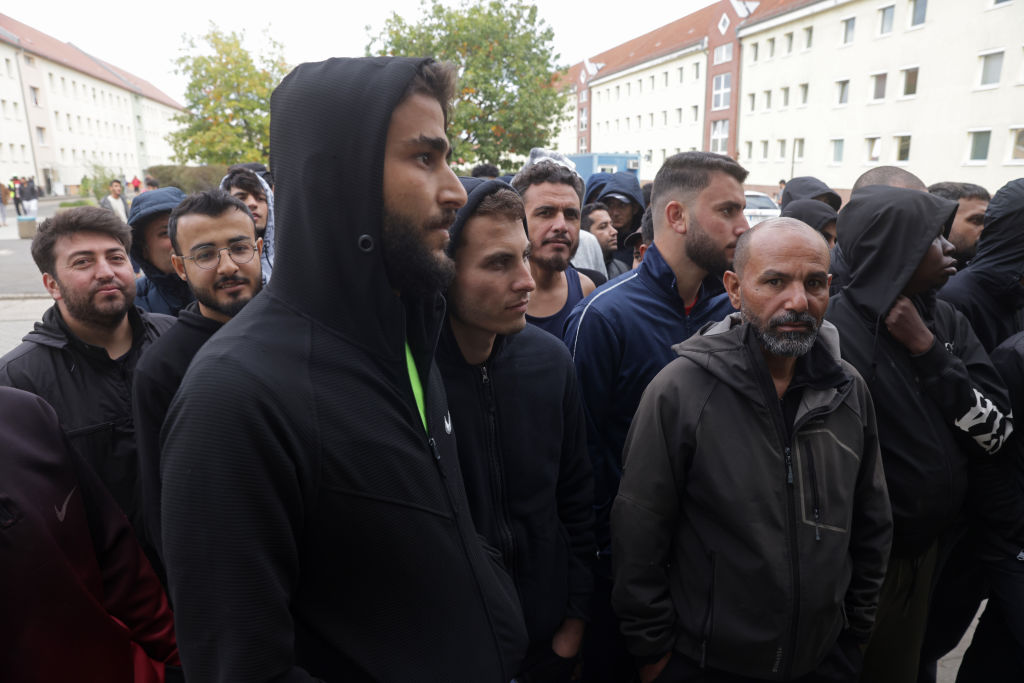Should asylum seekers be forced or allowed to work? As reported this weekend, that’s the question Germany is asking itself as it tries to balance work shortages in the economy with the rising number of refugees entering the country. While it’s a debate that Germany needs to have, this should be done without blurring the lines between genuine refugees, illegal migrants and skilled foreign workers.
With over three million refugees living in Germany, the country is one of the biggest hosts of asylum seekers in the world. Last year alone over 350,000 people applied, an increase of over 50% from 2022 — and that’s without the one million Ukrainian refugees who don’t have to apply for asylum.
The big question remains whether Germany can afford the rising costs which accompany this approach. Asylum-related expenditure for the federal government is expected to be around €21.3 billion, or 5% of the total this year. Add the cost of immigration, and the figure rises to €48.2 billion — nearly equivalent to regular expenditure for defence last year.
But the real pressure is on local districts which are allocated fixed numbers of people to accommodate. Berlin alone spent €1 billion last year on refugees, some of whom are being compelled by local councils to do low-paid work.
In the Saale-Orla borough in the eastern state of Thuringia, dozens of refugees do four hours of community work a day for 80 cents an hour or €64 a month on top of their allowance. Most help run the accommodation in which they are housed. A smaller number are being deployed externally.
One Syrian refugee, 49-year-old Hanan Baghdadi, washes football shirts at the Blau-Weiß football club in Neustadt, telling one German newspaper that she is “satisfied with my first job in Germany”. Other refugees work in a local food bank, packing groceries into bags.
District councillor Christian Hergott sees it as a way of giving refugees an opportunity to establish a daily routine and learn German. If they are allowed to stay, they will have taken their first steps towards finding employment. If asylum is denied, the scheme will allow them to “give something back to society and the German taxpayer”, as Herrgott explained in an interview.
But there is force behind the project. André Schröder, district councillor in the eastern state of Saxony-Anhalt, asked 64 asylum seekers to help carry sandbags to areas where heavy flooding had occurred. Of those asked, 25 didn’t turn up at all. Those who couldn’t give a valid reason were sanctioned by having half of their €470 monthly allowance cut for three months.
Such work schemes are deeply controversial in Germany. Some argue they put “exploitation before integration”, as one paper put it. Pro Asyl, Germany’s largest pro-immigration NGO, has lobbied for all compulsory work to be scrapped and refugees to be granted immediate access to the job market.
The centre-left ruling coalition seems to agree, and is currently planning legislation that would remove legal obstacles for refugees to work, even if their right to stay has not been established. Under the plans, local authorities would have two weeks to respond to an employer who wants to hire an asylum seeker. If there is no response, the company can go ahead. In other words, if authorities are overwhelmed, the market can hire people regardless.
In principle, access to a new labour pool may be desirable given Germany’s acute skills shortage. In practice, it isn’t going to solve the problem. How many doctors, care workers or engineers are among the asylum seekers is not only a complete coincidence but also unknowable until their applications have been processed, a task that isn’t made easier by the fact that the majority of refugees arrive without papers. This year, 57% didn’t even have a passport, never mind university or vocational certificates. Local authorities stand no chance of undertaking even basic security checks in two weeks under those conditions.
Authorities are also meant to ensure that the conditions of employment are comparable to German standards. The idea is to avoid exploitation and wage depression — neither of which can happen under unrealistic processing deadlines. What’s more, at present only half of asylum applications are granted, making the other half of new arrivals illegal immigrants with no right to be in the country but potentially contracted to work in it. It doesn’t seem right that a qualified worker considering moving to Germany through a regular visa would face significantly higher hurdles.
Germany’s high number of refugees and its skills shortage are both huge and complicated issues that demand an honest debate, especially given the heated political climate in the country. But the answer is not to conflate the two.











Join the discussion
Join like minded readers that support our journalism by becoming a paid subscriber
To join the discussion in the comments, become a paid subscriber.
Join like minded readers that support our journalism, read unlimited articles and enjoy other subscriber-only benefits.
Subscribe